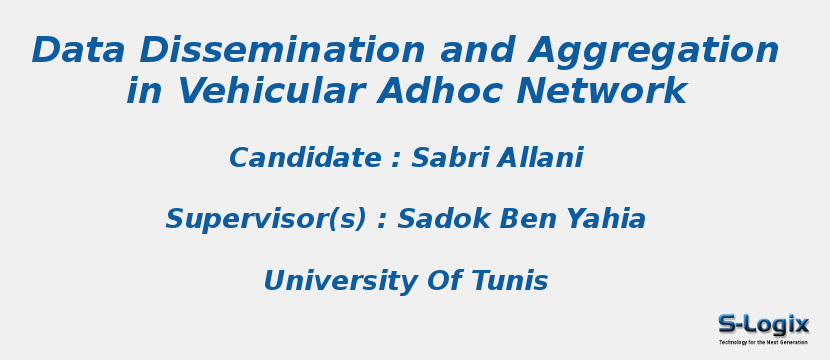Research Area: Vehicular Ad Hoc Networks
Since the last decade, the emergence of affordable wireless devices in vehicle ad-hoc networks has been a key step towards improving road safety as well as transport efficiency. Informing vehicles about interesting safety and non-safety events is of key interest. Thus, the design of an efficient data dissemination protocol has been of paramount importance. A careful scrutiny of the pioneering vehicle-to-vehicle data dissemination approaches highlights that geocasting is the most feasible approach for VANET applications, more especially in safety applications, since safety events are of interest mainly to vehicles located within a specific area, commonly called ZOR or Zone Of Relevance, close to the event. Indeed, the most challenging issue in geocast protocols is the definition of the ZOR for a given event dissemination.
The main thrust of DPMS consists of building the zones of relevance through the mining of correlations between vehicles’ trajectories and crossed regions. To do so, we rely on the Formal Concept Analysis (FCA), which is a method of extracting interesting clusters from relational data. The performed experiments show that DPMS outperforms its competitors in terms of effectiveness and efficiency. In another hand, some VANET applications, e.g., Traffic Information System (TIS), require data aggregation in order to inform vehicles about road traffic conditions, which leads to reduce traffic jams and consequently CO2 emission while increasing the user comfort. Therefore, the design of an efficient aggregation protocol that combines correlated traffic information like location, speed and direction known as Floating Car Data (FCD) is a challenging issue.
In this thesis, we introduce a new TIS data aggregation protocol called Smart Directional Data Aggregation (SDDA) able to decrease the network overload while obtaining high accurate information on traffic conditions for large road sections. To this end, we introduce three levels of messages filtering: (i) filtering all FCD messages before the aggregation process based on vehicle directions and road speed limitations, (ii) integrating a suppression technique in the phase of information gathering in order to eliminate the duplicate data, and (iii) aggregating the filtered FCD data and then disseminating it to other vehicles. The performed experiments show that the SDDA outperforms existing approaches in terms of effectiveness and efficiency.
Name of the Researcher: Sabri Allani
Name of the Supervisor(s): Sadok Ben Yahia
Year of Completion: 2018
University: University Of Tunis
Thesis Link: Home Page Url
